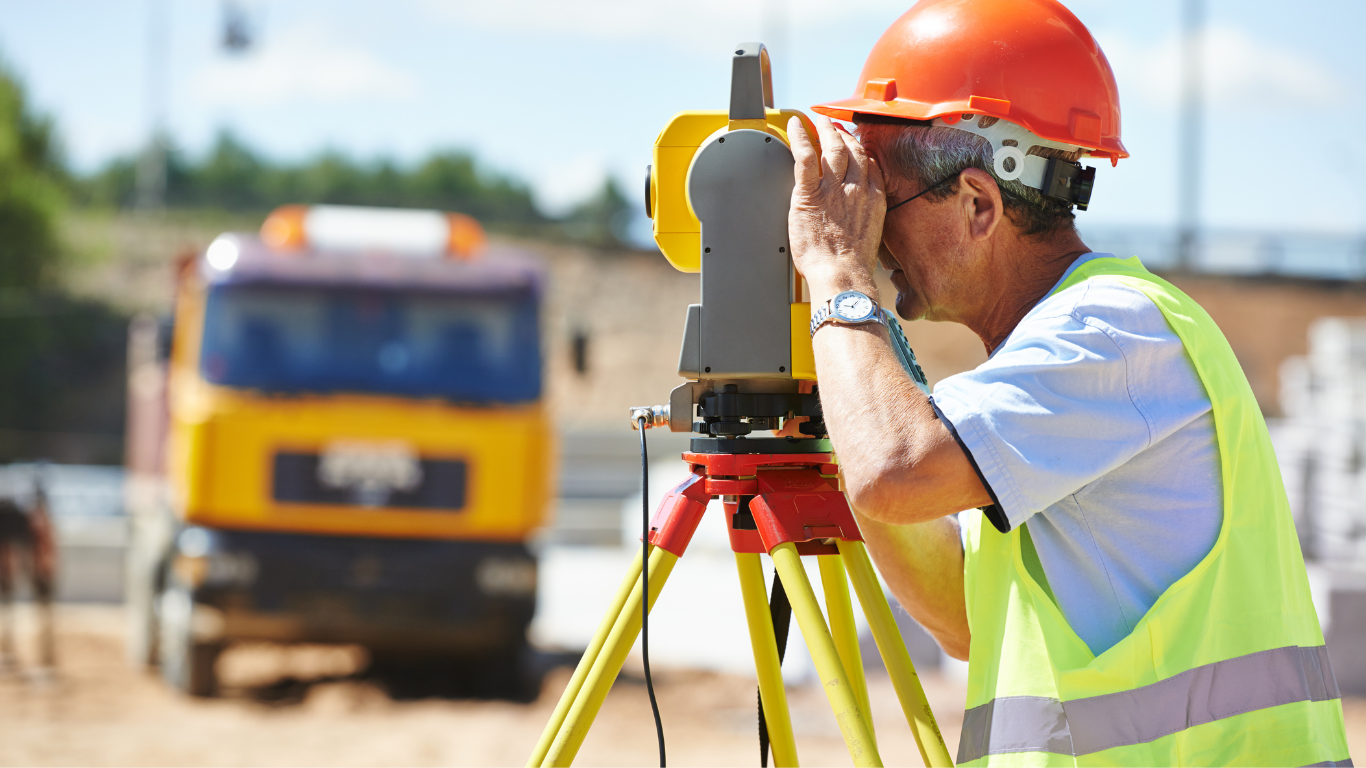
21 Sep Salary, Roles, and Opportunities in Surveying Engineering
A surveying engineer, also known as a surveyor, plays a crucial role in measuring and analyzing land. This profession involves a variety of tasks essential for infrastructure development and urban planning. This article explores the responsibilities, education, and skills required for this role, as well as an analysis of the labor market, salary trends, and the tools survey engineers use in their daily work.
Roles and Responsibilities of a Surveying Engineer
Surveying engineers are fundamental in construction and urban development projects. They perform precise land measurements and provide critical data used for planning and designing infrastructure.
Key tasks of a survey engineer include:
- Conducting topographic measurements to determine boundaries, elevations, and geographic features.
- Creating maps and plans that reflect physical and legal land conditions, using both traditional methods and advanced modeling tools.
- Collaborating with architects, civil engineers, and urban planners to ensure terrain specifications are integrated into project designs.
- Advising on land division, analyzing regulations, and legal restrictions affecting projects.
- Managing field teams, coordinating technical staff during data collection and surveying activities.
Surveying engineers are responsible for ensuring high accuracy in all measurements to prevent future legal or structural issues. They must stay updated with technological advancements in surveying tools and geospatial software, including GIS systems and drones.
Effective communication skills are also crucial for survey engineers, as they must convey technical results clearly to colleagues, clients, and authorities to support informed decision-making.
Education and Skill Development
Becoming a surveying engineer usually requires a bachelor’s degree in surveying, geomatics, or civil engineering. These programs typically last three years and provide a solid theoretical and technical foundation.
Students develop skills in areas such as:
- Land measurement and analysis fundamentals.
- GIS systems and geospatial data processing.
- Legal aspects of land ownership and usage.
- Project planning and infrastructure execution.
Internships and practical training are essential, offering hands-on experience that prepares students for real-world surveying challenges.
Key professional skills include precision in measurement, analytical ability, technological proficiency, and effective communication. Staying updated with emerging GIS tools and advanced software is vital, as is a commitment to continuous learning in a rapidly evolving field.
Labor Market Analysis and Professional Demand
The job market for surveying engineers shows a balance between supply and demand, providing reasonable employment opportunities. Urbanization and infrastructure development are driving demand for skilled professionals in this field.
Factors influencing demand include:
- Large-scale infrastructure projects (roads, bridges, buildings).
- Digitalization of surveying and mapping services.
- Government initiatives in sustainable development and urban planning.
Urban areas typically offer more opportunities due to a concentration of construction projects, though rural areas also provide roles in land management and resource planning.
Employers now seek candidates with advanced technical skills, project management capabilities, and strong communication. The role of the survey engineer is increasingly collaborative, integrating with multiple disciplines.
Employment projections are positive, with ongoing demand for professionals skilled in geospatial analysis and digital surveying technologies.
Surveying Engineer Salary
The salary of a surveying engineer varies depending on experience, location, and sector. In general:
- Entry-level survey engineers: $38,000–$45,000 USD per year
- Mid-level survey engineers: $46,000–$60,000 USD per year
- Senior-level survey engineers: $61,000–$70,000 USD per year
Salaries can also differ slightly by region and sector, with private companies often offering higher pay and public sector roles providing more stable benefits. Overall, with increasing investment in infrastructure and urban development, surveying engineering remains a promising and growing career.
Tools and Technology for Surveying Engineers
Surveying engineers rely on advanced tools and technologies for accurate land measurement and analysis. Key tools include:
- Total stations: Combine theodolites and distance meters for precise measurements.
- Optical levels: Determine height differences in terrain.
- GPS/GNSS systems: Provide accurate global positioning.
- Drones: Capture aerial imagery and survey challenging terrain efficiently.
- GIS software: Manage, analyze, and visualize spatial data for mapping and modeling.
Modern surveying also incorporates Building Information Modeling (BIM) and specialized software for data processing and infrastructure simulations. Continuous training in new tools and technologies is critical to remain competitive in the field.
Benefits, Working Conditions, and Compensation
Surveying engineers enjoy various benefits depending on the sector:
- Flexible working hours
- Wellness subsidies
- Remote work opportunities
Public sector roles tend to offer stable salaries and additional benefits, while private sector roles may provide higher pay with more variability. Bonuses and incentives are common for high-stakes or large-scale projects.
Ongoing professional development is emphasized, ensuring engineers stay current with technological innovations and industry standards.
Frequently Asked Questions
What is the average surveying engineer salary? $38,000–$70,000 USD per year, depending on experience and sector.
What education is required? A bachelor’s degree in surveying, geomatics, or civil engineering with both theoretical and practical training.
Which skills are key? Analytical ability, communication, technical expertise in GIS, and surveying methods.
What are main responsibilities? Land measurement, mapping, urban planning advice, and property management.
The future for surveying engineers looks promising. Urban expansion, infrastructure projects, and the digitalization of surveying services will continue to drive demand. Specializing in GIS, legal land consultancy, or advanced surveying technologies can enhance career opportunities.


